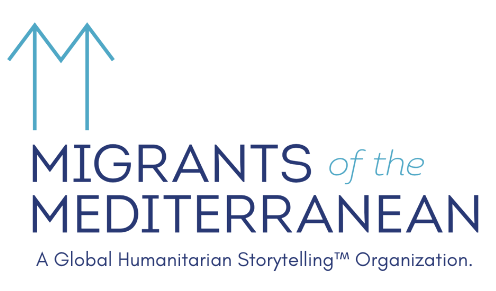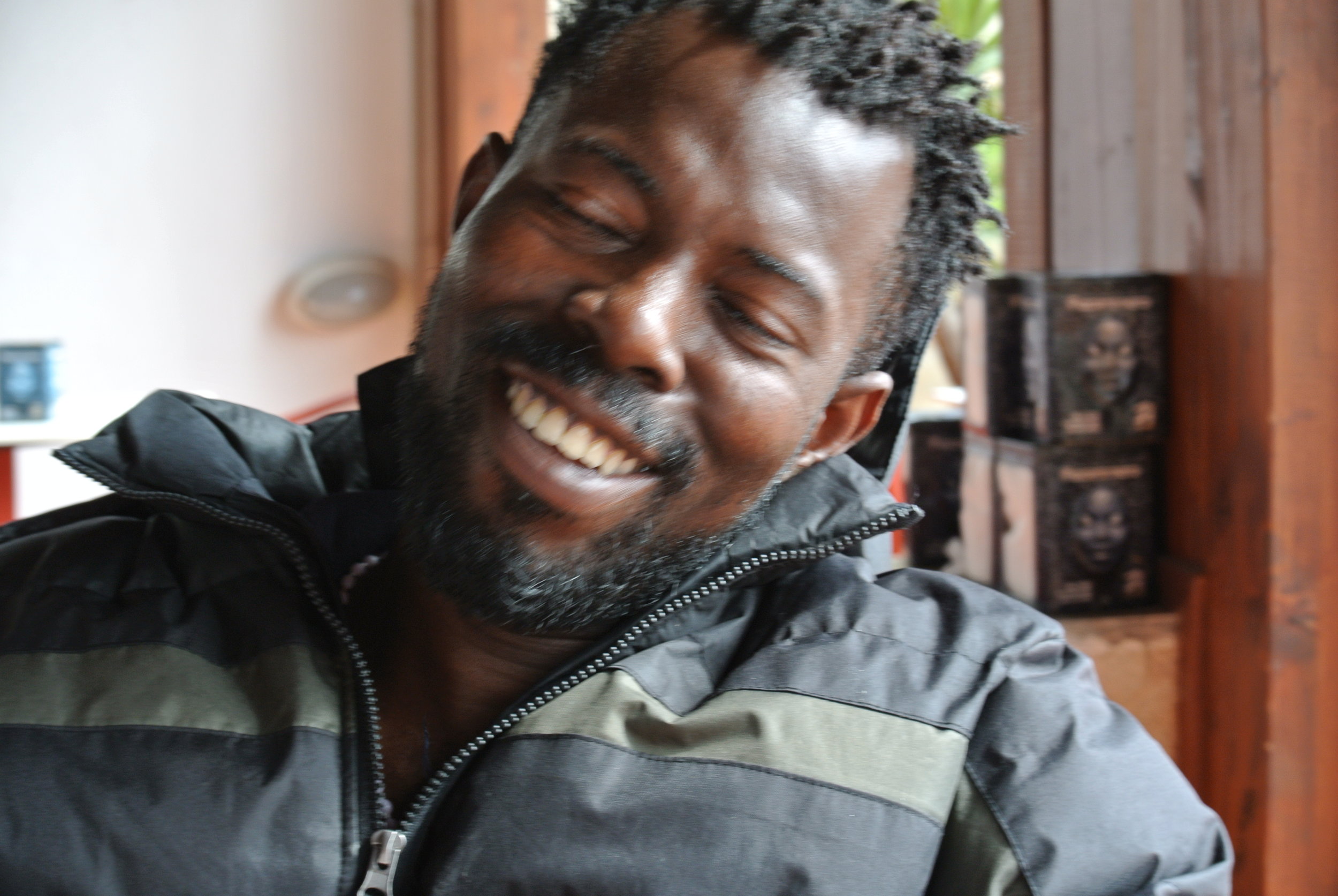Meet Richard
Richard about one month after being rescued on the Mediterranean Sea. Lampedusa, Italy; April 2017. ©Pamela Kerpius/Migrants of the Mediterranean
by
Pamela Kerpius
Recorded:
April 2017
Published:
2017
Meet Richard.
22 years old and from Benin City, Nigeria.
To reach Lampedusa he crossed three countries: Nigeria, Niger, and the most dangerous of all, Libya.
Richard left Nigeria on July 10, 2016 and his journey took about nine months. He had a brother, but he was killed in a bombing in town. He had to leave because people were coming for him and his sister, Faith, who was 18 years old. His house was bombed, but his mother stayed behind anyway.
Together, he and his sister left and they spent three days on the road to Agadez, Niger; they were in Agadez for one week.
From Agadez, still with his sister, he crossed the Sahara desert in a car with 26 people. It cost 80,000 Nigerian Naira (NGN), which is about the equivalent of $250USD. He saw many dead people and animals along the way. It is hot, to say the least, and death is all around.
He arrived in a city in Libya, whose name I’ve been unable to confirm. Names are given to me verbally and I write them phonetically in my notes until I can verify their spelling on a map; but I couldn’t find this particular name. The city may not mean much in the end, nothing seemed to happen there; but it is nonetheless a point along an established route, and therefore worth documenting.
“Prisoners were beaten on the
bottom of their feet...”
Richard arrived in Sabha, Libya and was held in prison there for three months.
The traffickers in Sabha used a piece of water pipe to beat him. Prisoners were beaten on the bottom of their feet with the pipe, “fifty lashings,” he told me, every day. They do this after they hand you a phone to call your family for money. Your family will listen on the other end of the line while you scream from the beatings.
Everyday he was burned on his arms with a hot piece of metal and electrocuted. Richard’s case was sensitive because his sister was threatened with forced prostitution if his family did not send money to cover the cost of both of their releases.
Prostitution is out in the open. Women and girls will be held at the compound, and men from within Sabha know they can go there to pay for sex. It’s another facet of the business of human trafficking in North Africa. Both Richard and his friend Philip (his interview to follow) saw women being raped in the open space of the compound where they lived.
To eat, Richard would receive one handful of rice daily that was mixed with canned tomatoes. Sometimes he’d get a spoonful of plain spaghetti in the evening, his share of a single plate given to a whole group to eat. They drank salty tap water. Everyday people were starving, and sick from the water.
Richard’s mother finally sold her land for money, then transferred 460,000NGN to a Nigerian bank account to have Richard and Faith released.
“I don’t know how I got
saved from the water.
It’s God.”
Traffickers keep bank accounts in every country where migrants originate so they can make swift, easy transfers.
He and Faith left for Tripoli in a pickup truck. He got sick there, and a man from Cameroon, another migrant, who they called “the doctor” gave him some basic medicine to recover.
His sister worked as a storekeeper and Richard worked as a welder within the Tripoli city limits, each for about four months.
On January 1, 2017, there was a shootout between police and Arab drug and arms smugglers. Smugglers in Tripoli use Black migrants as workers in their operation, because if they themselves are caught they’ll face severe consequences; so guys from Ghana, The Gambia, etc. are employed distributing weapons and drugs for them.
I couldn’t find anything from a basic Google search about the shootout on 14 January, but Richard and Philip tell me that casualties were high. 1200 Black refugees were shot dead, and 800 more were deported from Libya. A lot of those who were shot were simply by-standers in the area.
Among those people was Richard’s sister, Faith, working in a nearby shop. Richard’s mom still thinks Faith is alive because he hasn’t had the courage to tell her she was killed yet, “she would just die,” he says. When they talk on the phone he simply tells her she is out, but doing fine.
He left Tripoli for Sabratha and stayed in the coastal town for one day.
Richard crossed the Mediterranean Sea in a rubber dinghy at 5:00 or 6:00pm with 130-140 people, including eight women; no children or babies were on board. He sat on the edge with one foot dangling into the sea.
A wave struck and he was knocked out of the boat with eight others; two were saved: himself and another; seven others drowned before them.
“I don’t know how I got saved from the water. It’s God,” he says.
Philip was on the same boat with Richard and watched the whole thing. “This man supposed to be a dead man right now,” he said.
In total, he was out to sea for nine hours. A Spanish ship picked him up. From there, he was transferred to the Guardia Costiera, where he was finally brought to Lampedusa on March 5, 2017.
He has a wife in Nigeria and a baby girl named Joy who was born November 15, 2016. He loves football. He is educated and graduated from school. He wants to continue learning and working, probably as a welder. In time, he would like to send for his wife and child in Nigeria.
Richard is an amazing human being.
April 2017. ©Pamela Kerpius/Migrants of the Mediterranean


